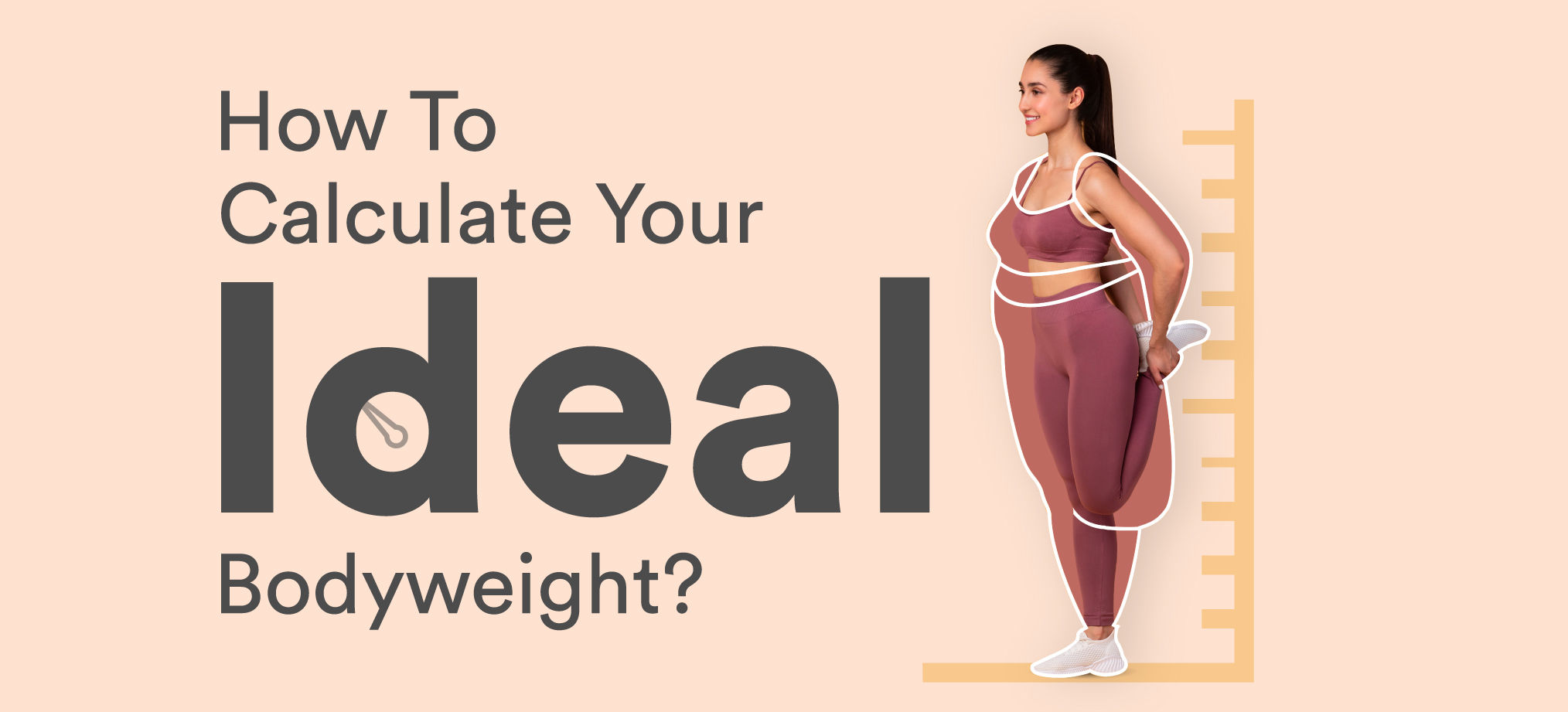Weight Management
Body Mass Index: How Much Should I Weigh According To My Height & Age?
5 min read
By Apollo 24|7, Published on - 20 February 2023, Updated on - 25 April 2023
Share this article
0
19 likes

Are you overweight? This is the question that has been giving sleepless nights to the millennials and generation Z. Adding to the anxiety is the absence of the right source of information online, which has pushed these people to go into overdrive mode to reduce their weight without having clarity on whether their weight is ideal or not. Blinded by the passion to look slim and fit, they eventually end up ignoring the scientific truth that a person's weight depends on various factors, including height, age, sex, and body composition.
The idea behind this blog is to provide details on various parameters that can help determine an individual's optimum weight.
Parameters Used to Determine Optimum Weight
The most common parameters considered in determining a healthy weight range for adults are age, height, body mass index (BMI), body fat percentage (BFP), waist-hip ratio (WHR), and waist circumference. Let's know them in detail.
1. Height
Height plays a significant role in determining healthy body weight by giving an idea of the body's frame size. When determining if an individual is overweight or obese, their weight according to height and age is considered.
Taller people generally have a larger frame size, meaning they have more skeletal and muscle mass. Due to this, taller people tend to have a higher weight than shorter people, even if they have a similar amount of body fat.
Height also affects the metabolic rate. Taller people tend to have a higher metabolic rate. As a result, they can consume more calories and maintain a healthy weight.
2. Body Mass Index (BMI)
BMI is a commonly used tool for assessing a person's weight range. It is calculated by dividing weight in kg by the square of height in meters. The resulting number is compared to a standard BMI chart to determine their category:
- 18.5 to 24.9: Normal
- 25 to 29.9: Overweight
- >30: Obese
While BMI is a standard parameter, it does not consider factors such as muscle mass and body composition.
3. Body Fat Percentage (BFP)
BFP measures the amount of fat in a person's body in relation to their total weight. Unlike BMI, BFP considers the amount of fat tissue in the body. This is important because having too much body fat, particularly abdominal fat, has been linked to an increased risk of heart disease, diabetes, and certain types of cancer.
On the contrary, having very little body fat is unhealthy as it can negatively impact overall health, metabolism, and hormone function.
There are various methods for measuring body fat percentages:
- Skinfold thickness measurements
- Bioelectrical impedance analysis
- Dual-energy x-ray absorptiometry (DXA)
- Underwater weighing
A healthy body fat percentage range can vary depending on age, gender and overall health. As a general guideline, a healthy range for women is typically between 21-33%, while for men, it is between 8-25%.
4. Waist-Hip Ratio (WHR)
WHR measures the proportion of fat stored on the waist and hips. It is calculated by dividing the waist circumference by the hip circumference. This ratio indicates overall health and fitness.
Lower waist-hip ratios indicate a more favourable distribution of fat. A healthy waist-hip ratio for:
- Women: Less than 0.8
- Men: Less than 1.0
5. Waist Circumference
Waist circumference is the measurement taken around the abdomen at the level of the belly button to measure the amount of abdominal fat. This type of fat usually builds up in the organs and can increase the risk of chronic conditions like diabetes, high blood pressure and cancers.
A general guideline for a healthy waist circumference is:
- Women: < 80 cm (31.5 inches)
- Men: < 94 cm (37 inches)
6. Age
As people get older, their metabolism slows down. They also tend to lose muscle mass, so their ideal weight may change over time.
Calculating the right weight is a complex process and needs medical expertise. Hence, it is best to consult with a healthcare professional to determine what weight range is appropriate for you based on your specific health needs and goals. They can consider other factors such as body composition, medical history, and lifestyle habits to provide a personalized recommendation. If you wish to know how you can achieve your ideal weight,
FAQs
Q. Does diet play an important role in managing weight?
Yes. A balanced nutritional diet can help you manage a healthy weight. But one should consult a dietician to have a personalized recommendation.
Q. What is considered a healthy BMI?
A BMI between 18.5 to 24.9 is considered healthy.
Q. Can BMI be considered absolute?
BMI comes with some limitations. For example, athletes who have a lot of muscle mass will have a high BMI. But that doesn't mean they are unhealthy. On the other hand, older adults may have a lower BMI but they can be at higher risk of health problems.
Q. How much should a woman 5 ft 2" tall ideally weigh?
The ideal weight range for a woman who is 5 ft 2" or 157 cm tall is between 44.9 kg to 54.9 kg
Q. What is considered a healthy BMI?
A BMI between 18.5 to 24.9 is considered healthy.
Q. Does BMI vary with age?
The ideal BMI range does not vary with age. Every individual must ensure their BMI lies in the healthy range between 18.5 to 24.9.
Medically reviewed by Dr Sonia Bhatt.
Weight Management
Leave Comment
Recommended for you

Weight Management
Have You Tried Apple Cider Vinegar For Weight Loss?
Apple cider vinegar offers multiple health benefits, including weight loss. Researchers attribute the weight loss benefits to acetic acid, the main active compound in ACV.

Weight Management
High-Protein Breakfast May Help Prevent Overeating And Obesity: True Or False?
This article tells you what are the benefits of eating a high-protein breakfast, and how it may help in weight loss. Also, find a list of high-protein foods that you can include in your breakfast.

Weight Management
International Day Of Yoga: Five Proven Yoga Poses To Help You Lose Weight Effectively!
Contrary to popular beliefs yoga can result in significant weight loss. Read to know the asanas that may help.
Subscribe
Sign up for our free Health Library Daily Newsletter
Get doctor-approved health tips, news, and more.
Recommended for you

Weight Management
Have You Tried Apple Cider Vinegar For Weight Loss?
Apple cider vinegar offers multiple health benefits, including weight loss. Researchers attribute the weight loss benefits to acetic acid, the main active compound in ACV.

Weight Management
High-Protein Breakfast May Help Prevent Overeating And Obesity: True Or False?
This article tells you what are the benefits of eating a high-protein breakfast, and how it may help in weight loss. Also, find a list of high-protein foods that you can include in your breakfast.

Weight Management
International Day Of Yoga: Five Proven Yoga Poses To Help You Lose Weight Effectively!
Contrary to popular beliefs yoga can result in significant weight loss. Read to know the asanas that may help.